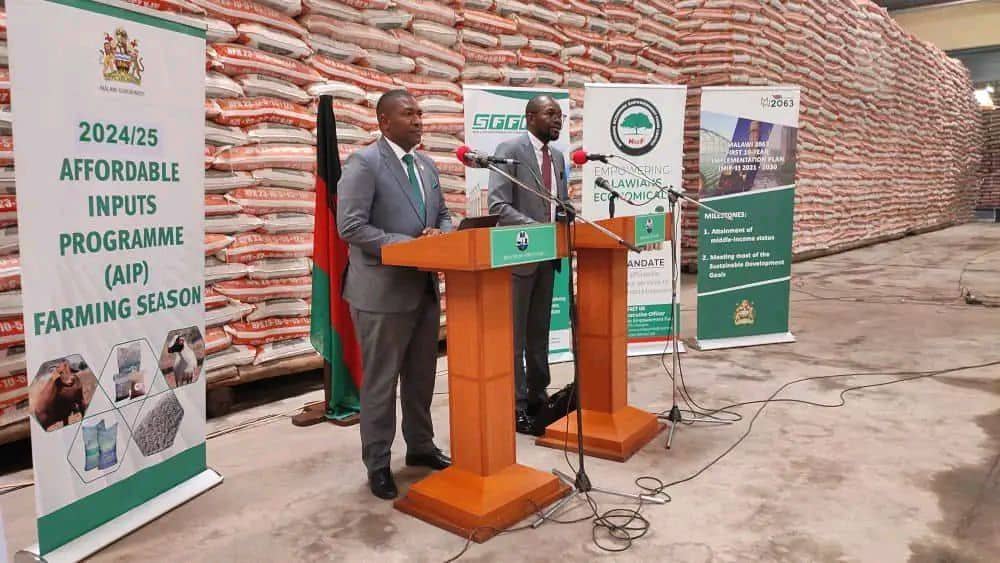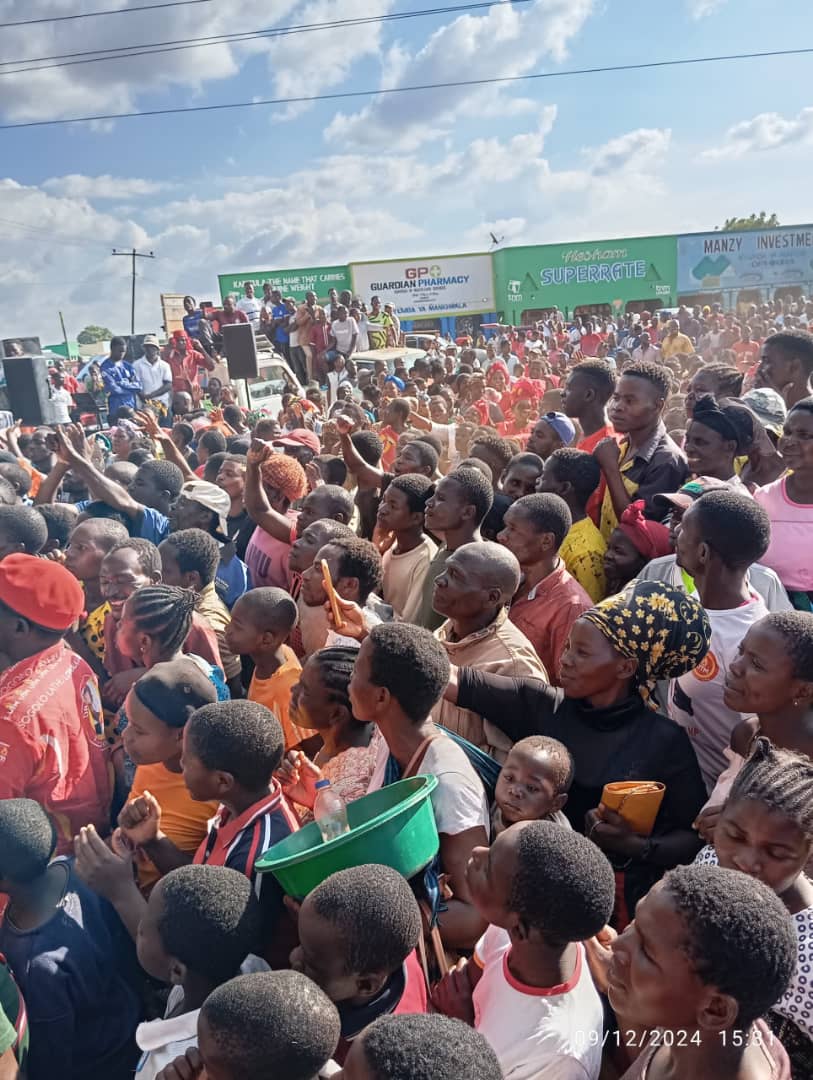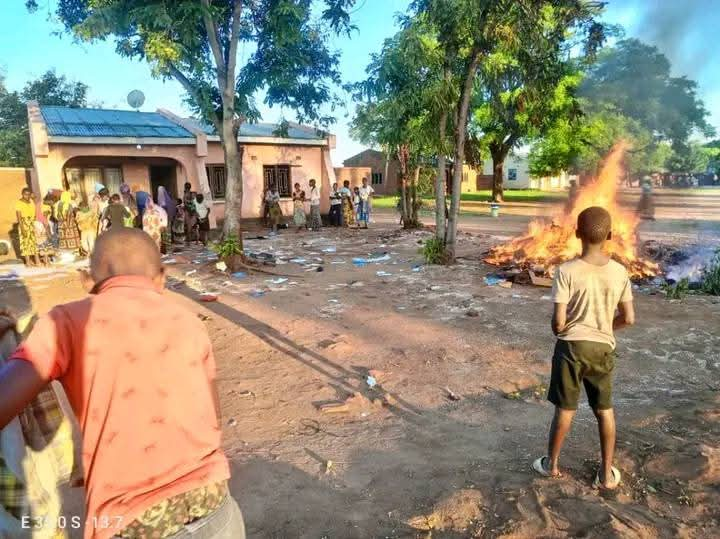By Burnett Munthali
As the rainy season approaches, the Malawian government has disclosed that it has so far secured only 39,354.3 metric tonnes (MT) of fertilizer for the Affordable Inputs Programme (AIP), falling significantly short of the 104,845 MT required for this year. This development has sparked concerns among farmers and agriculture experts about the potential impact on food security in the country.
The AIP, which was introduced to improve agricultural productivity and ensure food security for smallholder farmers, has been a key program for years. However, the shortage of fertilizer, particularly as the planting season draws near, threatens the effectiveness of the initiative. The delay in securing the necessary inputs may result in poor yields, jeopardizing Malawi’s primary source of food—maize—and worsening the already precarious food security situation.
Agriculture Minister Sam Kawale acknowledged the shortfall during a press briefing, stating that efforts to secure the remaining fertilizer are ongoing. “We are aware of the challenges farmers may face due to this delay, and we are working with partners to ensure that the remaining fertilizer is procured as quickly as possible,” he said.
Despite these assurances, there is growing skepticism about whether the government will meet the targets in time for the planting season. Many farmers in rural areas have already voiced their concerns about the availability of inputs, noting that the late arrival of fertilizer could negatively affect crop development and, ultimately, the harvest.
The fertilizer shortage has also raised questions about the efficiency and sustainability of the AIP. Critics argue that the program has been marred by procurement challenges, logistical bottlenecks, and corruption, which have hampered its success over the years. With the government failing to meet its fertilizer targets again this year, there are renewed calls for reforms in the AIP’s implementation.
Adding to the complexity is the rising cost of inputs globally, with fertilizer prices still high due to supply chain disruptions and geopolitical tensions. This has placed additional strain on the government’s ability to procure enough inputs for the program. Kawale indicated that these global factors are partly to blame for the shortfall, but assured that the government is exploring alternative sources of fertilizer to meet the shortfall.
“We cannot ignore the impact of global economic conditions on our ability to procure fertilizer. However, we remain committed to ensuring that our farmers receive the necessary inputs to produce a bountiful harvest,” said Kawale.
As uncertainty looms, smallholder farmers, who depend heavily on government subsidies to afford fertilizer, remain anxious about what lies ahead. With the planting season only weeks away, many are calling on the government to expedite its efforts and ensure that the inputs arrive on time.
The Ministry of Agriculture has urged farmers to remain patient, assuring them that the remaining fertilizer will be delivered before the end of the month. However, if the delays persist, the government may find itself facing another season of food insecurity and a public backlash from the farming community.
The Affordable Inputs Programme, initially hailed as a game-changer for Malawi’s agricultural sector, now stands at a crossroads. Whether the government can overcome the current challenges in time remains to be seen. What is clear, however, is that the stakes are higher than ever as the country’s smallholder farmers prepare for yet another planting season.
About the author
Burnett Munthali is a political analyst and contributor to various Malawian newspapers. He writes extensively on issues related to agriculture, governance, and economic development in Malawi.




